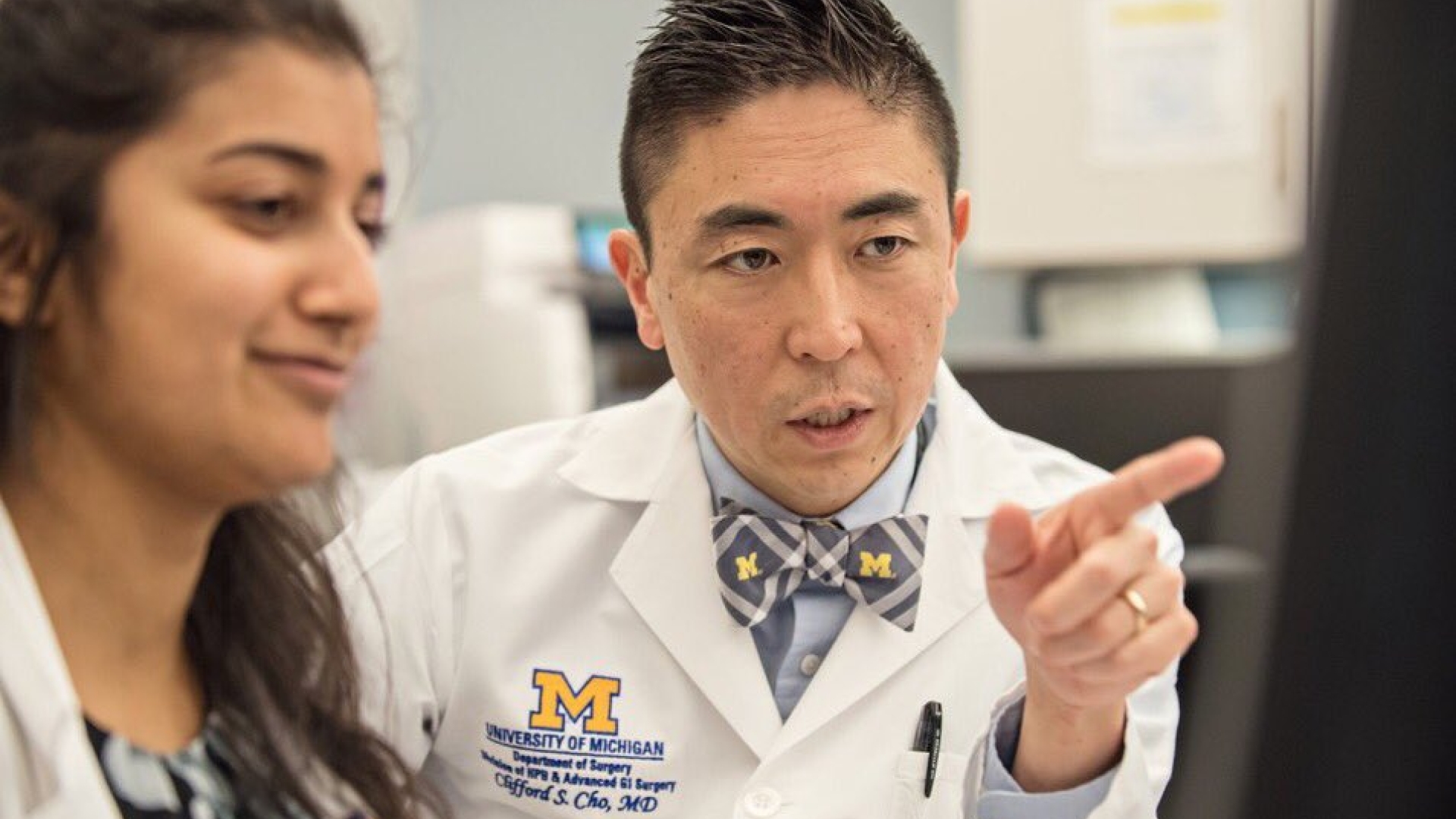The Cho Lab, led by Dr. Clifford S. Cho, is looking for ways to bring the benefits of immunotherapy to more people with cancer.

Over the past decade, progress in immunotherapy has dramatically changed the treatment and prognosis of some types of cancer. Many patients with once untreatable, advanced malignancies now have the real possibility of cure through therapies that successfully turn the body's immune system against cancer cells. But while immunotherapy can be remarkably effective against certain types of cancers, its promise has not extended to all. Many cancers, including pancreatic and hepatobiliary cancers, remain highly resistant to immunotherapy.
Since 2006, the Cho Lab, led by Dr. Clifford S. Cho, has worked to understand and overcome the mechanisms by which cancer cells circumvent the immune system, and to develop new ways to broaden and strengthen the impact of cancer immunotherapy. We do this by conducting preclinical research to identify new and combinatorial strategies that can be translated to clinical practice. Our goal is to improve immunotherapy for patients with all types of cancers, including those that have, to date, proven resistant to immune-based therapies.
Cancers deploy many mechanisms to evade and suppress the immune system. Recent immunotherapy breakthroughs have overcome some of these mechanisms, but many cancers remain stubbornly undetectable and therefore unreachable by immunotherapy. Gaining new insights and developing new approaches have been the focal point of our research efforts for well over a decade.
After moving to the University of Michigan in 2016, our laboratory began a collaboration with researchers in the Department of Biomedical Engineering who had discovered an entirely novel approach to destroying tumors called histotripsy. Histotripsy uses focused high intensity ultrasound pulses to cause precise tissue destruction – all in a manner that is completely non-invasive. The purely mechanical and non-thermal nature of cellular destruction caused by histotripsy led us to test the hypothesis that histotripsy could destroy tumor cells while releasing their hidden contents – thereby making them visible to the immune system. Over the past several years, we have applied histotripsy to murine models of cancer to measure, understand, and harness the remarkable ability of histotripsy to stimulate anti-tumor immune responses and enhance the effects of immunotherapy. We employ a wide range of experimental approaches including cell culture, flow cytometry, immunofluorescence, proteomics, RNA sequencing and spatial transcriptomics to understand how histotripsy can be optimally deployed to sensitize cancer patients to immunotherapy.
Our efforts and discoveries have allowed us to demonstrate the surprising ability of histotripsy to trigger immune responses against cancer. We have also discovered the many mechanisms underlying this effect. We have learned that histotripsy treatment induces cancer cells to undergo highly regulated pathways of cellular suicide referred to as immunogenic cell death – pathways that not only release hidden cancer antigens, but also cause inflammation to attract the attention of immune cells. We have discovered that histotripsy primes CD8+ T cells to be able to seek and destroy cancer cells through a unique pathway of cell death called ferroptosis – a phenomenon that mimics the effects of cancer immunotherapy. All of these effects are enabled by dramatic changes in pressure and blood flow within the tumor that occur almost immediately following histotripsy treatment. Importantly, these effects significantly strengthen the effects of immunotherapy; in our experimental models, the addition of histotripsy allows immunotherapy to work on cancers that are normally resistant to treatment.
Importantly, Dr. Cho has led clinical studies confirming the safety and efficacy of histotripsy for patients with cancer – leading to its recent FDA approval. Now that histotripsy has been approved for use in patients, we hope to translate our laboratory findings and successes into clinical reality.